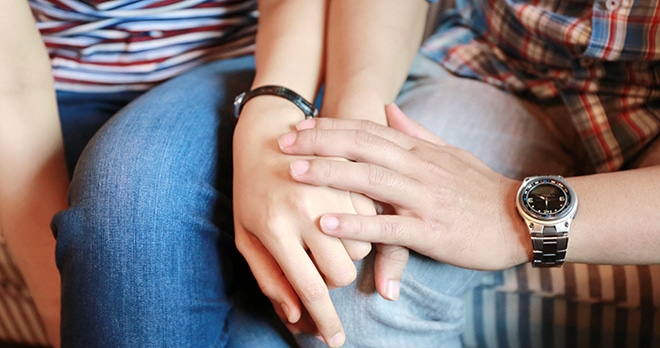World Mental Health Day: Supporting mental wellbeing through the inquest process

Bereavement, and loss of a friend or family member, affects people in very different ways with a range of emotions that can put huge pressure on individuals’ mental health, negatively impacting their wellbeing in the short and long-term. It could express itself in depression, anger, panic, feeling overwhelmed or anxiety, among many other emotions.
Families who are going through the inquest process can experience these feelings more acutely. Where an inquest is held, it is because a death has been violent, unexplained, in detention, or where the cause of death is unknown. This means that the death is likely to have been sudden and family and friends may have unanswered questions about how their loved one died.
The lack of knowing how someone died, the circumstances around their death, or whether anything could have been done to prevent it, can delay the grieving process, with families feeling unable to properly grieve until they understand how their loved one died.
It is fundamental that, as a family member or friend of someone who has died, that you also focus on your own well-being throughout this difficult time. It is important to seek support from those around you, professionals and local support groups in order to help with the grieving process.
Where to seek support
There are a number of specialist support organisations that can help with bereavements, particularly those that may lead to an inquest, and where families can find both professionals to help but also the support of those who have gone through a similar bereavement.
- INQUEST provides advice and support for families of someone who has died a ‘state-related death’ such as in prisons, mental health units or after contact with the police.
- Survivors of bereavement by suicide is a specialist support network including a helpline, email support and local groups for those who have been bereaved by suicide.
- Child Death Helpline is a helpline for those who have lost a child of any age. It is staffed by trained volunteers who have themselves lost a child.
- BEAD is a charity that supports those who have been bereaved by alcohol of drugs. It provides a website of resources and information and is run by Cruse, a bereavement charity, that has a helpline for those who are grieving.
- Sudden who provides guidance and information for those who have been bereaved by any unexpected death such as suicide, advanced terminal illness, heart attacks, SIDS, or any other sudden death.
You can find a full list of resources for the bereaved here.